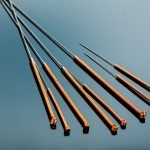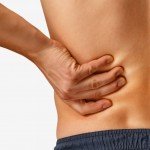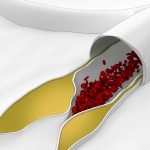Leafy Green Veggies Could Reduce Risk of Macular Degeneration
Node Smith, ND
A recent study found that consuming vegetable nitrates may help to reduce risk of developing early-stage age-related macular degeneration (AMD).1 Vegetable nitrates are found in high concentration in leafy green vegetables such as spinach and kale, as well as beetroots.
Vegetable nitrates found in high concentration of leafy greens
The study is part of a 15-year ongoing investigation of lifestyle and dietary factors contributing to health and disease in Australia and is being conducted by researchers at the Westmead Institute for Medical Research.
For this specific facet of the study on AMD, over 2,000 adults over the age of 49 were followed for 15 years.
Findings of the study
The findings of the study showed that individuals who ate between 100 and 142 mg of vegetable nitrates daily had a 35 percent lower risk of developing early AMD compared to those who ate less than 69 mg per day.
First time dietary nitrates and macular degeneration risk being measured
Lead Researcher Associate Professor Bamini Gopinath from the Westmead Institute and the University of Sydney said, “This is the first time the effects of dietary nitrates on macular degeneration risk has been measured.” And that “If our findings are confirmed, incorporating a range of foods rich in dietary nitrates – like green leafy vegetables and beetroot – could be a simple strategy to reduce the risk of early macular degeneration.”
To make these amounts tangible, spinach has roughly 20 mg of nitrate per 100g. This is roughly 2 handfuls. Beets contain about 15 mg per 100g, which is around a handful.
Dietary nitrates increase nitric oxide in blood, improving vasodilation and blood flow
Dietary nitrates increase nitric oxide in the blood, which are thought to improve vasodilation, which improves blood flow. This has been a physiological reason for advocating foods high in nitrates for other conditions such as hypertension.
 Node Smith, ND, is a naturopathic physician in Portland, OR and associate editor for NDNR. He has been instrumental in maintaining a firm connection to the philosophy and heritage of naturopathic medicine among the next generation of docs. He helped found the first multi-generational experiential retreat, which brings elders, alumni, and students together for a weekend camp-out where naturopathic medicine and medical philosophy are experienced in nature. Four years ago he helped found the non-profit, Association for Naturopathic ReVitalization (ANR), for which he serves as the board chairman. ANR has a mission to inspire health practitioners to embody the naturopathic principles through experiential education. Node also has a firm belief that the next era of naturopathic medicine will see a resurgence of in-patient facilities which use fasting, earthing, hydrotherapy and homeopathy to bring people back from chronic diseases of modern living; he is involved in numerous conversations and projects to bring about this vision.
Node Smith, ND, is a naturopathic physician in Portland, OR and associate editor for NDNR. He has been instrumental in maintaining a firm connection to the philosophy and heritage of naturopathic medicine among the next generation of docs. He helped found the first multi-generational experiential retreat, which brings elders, alumni, and students together for a weekend camp-out where naturopathic medicine and medical philosophy are experienced in nature. Four years ago he helped found the non-profit, Association for Naturopathic ReVitalization (ANR), for which he serves as the board chairman. ANR has a mission to inspire health practitioners to embody the naturopathic principles through experiential education. Node also has a firm belief that the next era of naturopathic medicine will see a resurgence of in-patient facilities which use fasting, earthing, hydrotherapy and homeopathy to bring people back from chronic diseases of modern living; he is involved in numerous conversations and projects to bring about this vision.










